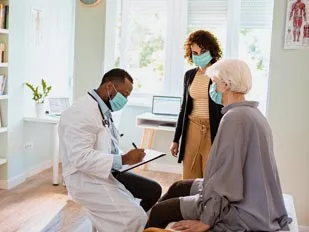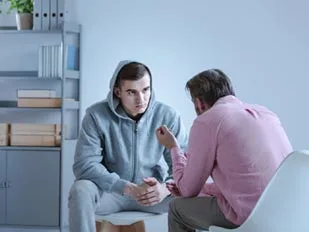Cannabis Addiction Treatment
Also known as weed, marijuana, pot and ganja, cannabis is a psychoactive substance that alters your brain chemistry. Quitting cannabis can result in cravings that are disruptive to your daily life. NIDA advocates that 9-10% of cannabis users will develop a drug addiction. This figure increases to 17% of users if you are still an adolescent, and 25 to 30% for those who use it daily.
If you need cannabis to function in your day-to-day life and feel that you cannot socialize, sleep or eat properly without it, cannabis rehab may help you to overcome your psychological dependency from the drug abuse.
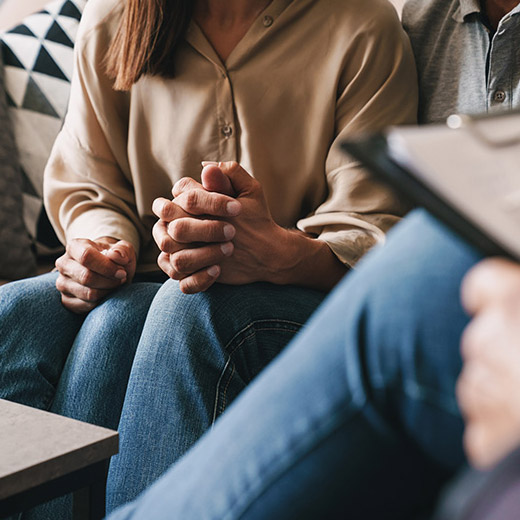

About Our Marijuana Rehab Center
Booking a marijuana rehab program can be daunting but we offer a luxurious rehab experience to make your recovery from marijuana addiction as comfortable as possible. We are located an hour west of Los Angeles, in a tranquil environment that supports a stress-free rehab process so that you can detox, recover, heal and learn new coping techniques for your life.
You will be supported throughout your program by our experienced medical and operations team. Each client has a customized treatment program designed in conjunction with our therapists on admission, to ensure you achieve your recovery goals.
Most of the clients who visit our recovery center begin with a cannabis detox. Thereafter, our substance abuse treatment center provides inpatient and outpatient programs, as well as extended support groups, Alumni and aftercare to facilitate a long-term recovery. We offer gender-specific and LGTBQ+ facilities to ensure everyone is catered for.
Getting Help for Cannbis Addiction
You don’t have to manage cannabis addiction on your own. Reaching out to a close friend, an understanding family member, or your GP can help you to bridge the divide between marijuana addiction and relapse. If you don’t have someone close to turn to or if you are worried about being judged, contact our hotline.
Getting professional help gives you the best chance of making a long-term recovery and avoiding a relapse. Actively seeking help is the first step in your recovery journey and, as challenging as it might seem at the beginning, you have the power to change your life for the better.
If you are ready to start long-term recovery and need help with cannabis addiction, you have a few different options:
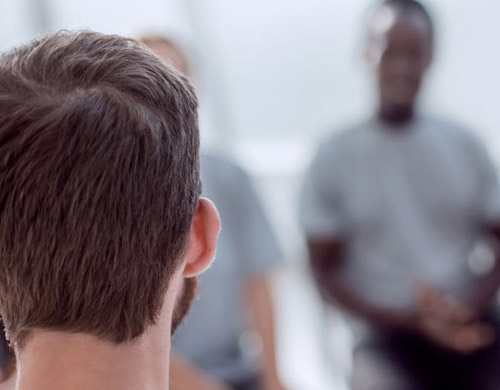
- Educating yourself about addiction, the reasons why you might have a dependency and how to address it
- CBT interventions (talking therapy) to address underlying causes and triggers for your addiction. CBT is an evidence-based approach to treating addiction and is an integral component of every rehabilitation program
- Enrolling in an in-patient or residential program to treat cannabis addiction
12 Step support groups, which offer extended assistance once you have completed in- or out-patient treatment
An assessment and customized treatment plan are the most effective way to achieve your treatment goals.
How We Treat Cannabis Addiction
Our philosophy is to address the underlying causes of marijuana addiction comprehensively. We offer a range of treatment therapies and counseling services in our luxury rehab center to appeal to our clients’ preferences and needs. The therapies we offer include Cognitive Behavioral Therapy, harm reduction, family therapy sessions, motivational enhancement therapy and trauma therapy.
Addiction treatment programs
By displacing you from your everyday life and immersing you in our luxurious environment, you will be taken care of as you learn new coping strategies for your life in recovery.
Extended residential programs
Addiction is a chronic medical condition and our extended residential programs are ideal for clients who need a longer treatment sequence through extended support.
Addiction relapse prevention
Our therapeutic approach is designed to address the root cause of marijuana addiction to provide our clients with insights that can help you to avoid a relapse.
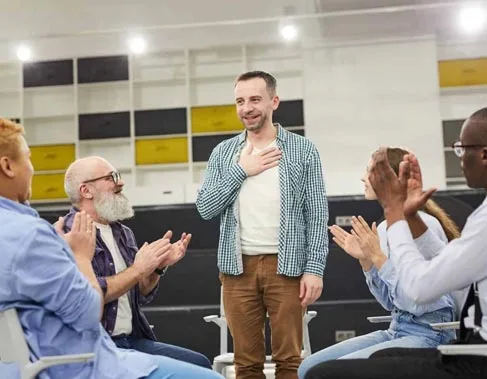
Types of Programs
Each recovery program is tailor-made to your requirements when you are admitted to our substance abuse treatment center. Our medical team will work closely with you, to help you to define your objectives in recovery from marijuana addiction. In order to achieve this, we take into account the amount of cannabis you have been using, how often and how long you have been using for, the potency of the strain, any co-occurring substance use disorders, such as prescription medication or alcohol, any dual diagnoses.
Detox Program
Cleanses THC from your system. While cannabis detoxes are generally not dangerous, they can be uncomfortable and distressing to experience. Having a medically-supervised detox can ensure that you cope with the physical withdrawal process and protect you against relapse in your marijuana addiction treatment.
Because some people may use it to escape strong or uncomfortable emotions, not having marijuana can amplify the withdrawal symptoms. Clients who have co-occurring addictions or dual diagnosis, as well as those who have tried to quit unsuccessfully in the past, will benefit from a supervised marijuana detox.
Learn more about our detox programs
Residential Program
Our residential program provides you with holistic, 24-hour support so you can learn alternative coping strategies in your marijuana abuse treatment. By staying in a residential or inpatient program, you are safeguarded in a secure and non-judgmental environment that is substance-free and stable, and limits your exposure to potential triggers.
Clients in our residential program typically have access to 30 to 45 days of supervised recovery, including individual and group therapy at our 12-step facility. Remaining in an inpatient program provides you with a better chance of long-term recovery, than if you complete it as an outpatient.
Learn more about our residential rehab programs
Aftercare Program
Aftercare programs are available to support those in recovery following inpatient programs, and assist with long term sobriety. Relapse rates for addiction recovery may be as high as 85%, but participating in an aftercare program can reduce the risk to fall back into substance abuse.
Our aftercare program can be considered as an extension of rehab that can continue for as long as you want it to. Aftercare incorporates activities and resources designed to help you manage stressors, triggers and cravings after treatment, and rediscover your enjoyment of life.
Some examples of aftercare programs include sober living homes, alumni programs, support groups, therapy and counseling, and outpatient treatment.
Learn more about our aftercare program
Why Choose United Recovery CA for Cannabis Rehab?
- Constant care and monitoring
- Professional psychotherapy
- Individual therapies
- Group therapy
- Holistic services
- Mental health services
- Experiential therapy
Leaders in
Addiction Treatment
Recover in a
Luxury Environment
Aftercare &
Lifetime Support
How Long Does Cannabis Rehab Last?
Your cannabis rehab program will be tailored to suit your needs,and will take the intensity of your dependency into account. People who have been using cannabis for a long time, those who have used high potency marijuana, and those who have been using it daily are likely to have bigger physical and psychological dependencies.
Thereafter you have the option to enter into a residential program, which can last for 30 to 45 days.
It is highly recommended that you consider aftercare programs following inpatient marijuana abuse treatment, the type and duration of which can be tailored to achieve your long term sobriety goals. We encourage you to connect with like-minded people at similar stages of recovery in our rehab center, and to remain a part of the community for as long as you want to.
Therapies used to Treat Cannabis Addiction
Different therapies are offered to provide you with addiction support in a personalized manner. Although our team of professionals consists of members who have worked through rehab themselves, no one claims to know what you are going through, because your rehabilitation is a very personal experience. Through professionally guided therapy sessions you can rediscover your love for life in a non-judgmental and secure environment.
Group Therapy
Developing a cannabis dependency can be a lonely experience. You may isolate yourself and not want to discuss your dependency with anything else, or you may have developed friendships with other people who have dependencies and may need a confidence boost to build new connections and relationships. Group therapy reserializes and integrates you with others, creating a positive and supportive environment that fosters friendship and forgiveness.
Group therapy sessions are complementary to other treatment modalities and are conducted with people who have similar experiences to you (recovery from substance abuse), and who are in similar stages of rehab and recovery. Having this network available can encourage, challenge and support you throughout the process.
Individual Therapy
One of the goals of individual therapy is to help you to find meaning and joy in your life, and to define your purpose and goals. Individual therapy is immensely beneficial in helping you uncover and understand what the root causes of your dependency are, and to help you build new patterns and habits that align with your sober future.
Some commonly incorporated approaches to individual therapy include cognitive behavioral therapy (CBT), dialectical behavior therapy (DBT) and trauma therapy. These are powerful tools that can be used on your road to recovery, and it’s important to realize that the road can be long. Your underlying triggers need to be addressed and new coping patterns learnt, in order for you to fully embrace long term recovery.
Holistic Therapy
Holistic therapy has been designed to assist you in all domains of your being: mental, physical and spiritual. Conventional approaches to therapy tend to focus more on the cognitive aspects of addiction recovery from marijuana abuse. Ultimately, the objective of holistic therapy is to enable and empower you to achieve your highest potential, by improving self-esteem, confidence and self-awareness.
Some of the holistic treatments we offer include nutrition therapy, art therapy, yoga, music therapy, meditation, life skills, and massage therapy. These therapeutic approaches stimulate creativity and remind you how to enjoy and reward yourself in a healthy manner. They are complementary to all other processes followed in our substance abuse treatment center.
Do You Need Help?
We can help you get better. Together, we can build up your confidence and you can regain control over your life! Contact us now to begin your recovery from Cannabis addiction!
Aftercare & Support Groups
Rehab aftercare and support groups provide an essential support role once you have completed your inpatient program.By staying connected to a community of people who are on the road to recovery, you improve your chances of long-term sobriety.
Through collaboration and interaction with others you learn how to address problems from different points of view. Having the support of peers is incredibly important once you leave an inpatient program because your environment and your responses to it become your responsibility. Your support network can provide you with invaluable insight and advice in terms of how to adjust to your new life.
We offer a variety of aftercare and support group models to assist you in your recovery process from marijuana abuse, including sober living homes, alumni groups and ongoing therapy. These mental health services will lower the risk of relapse into substance use disorder.



